Japan is one of the leading exporters of textile manufacturing machineries in the world. Its total export of various knitting machineries between 2016-2020 was USD 2472 Million. China was one of the leading importers from Japan. Other nations also sourced their machineries from Japan. Due to the global pandemic of Covid-19, exports from Japan witnessed a decline.
Japan is one of the leading exporters of knitting machines in the world.
Table 1: Knitting machine, stitch-bonding machines and machines for making gimped yarn, tulle, lace
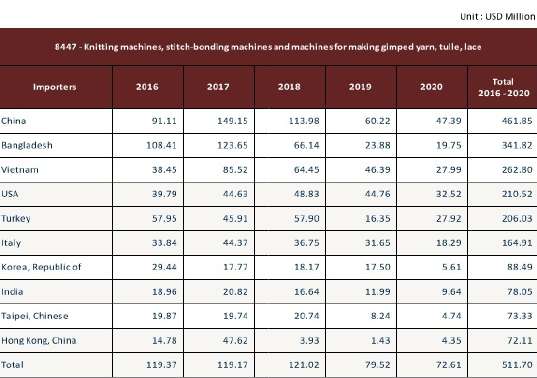
In between 2016-2020, Japan exported knitting machines, stitch bonding machines & machines for making gimped yarn tulle that were valued USD 2,471 million in the whole world. China was among the top 10 importers from Japan who purchased the above machines of total value USD 461 million. China’s highest import between the given period was in the year 2018 when it imported those machineries worth USD 113 million. Due to the pandemic, this export to China dwindled. The total export from Japan to China was USD 47 million in the year 2020.
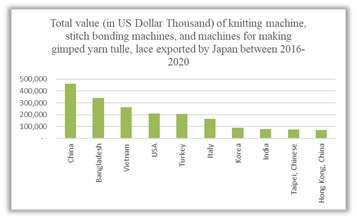
Figure 1: knitting machines, stitch bonding machines & machines
China was followed by Bangladesh & Vietnam with the respective import of USD 341 & 262 million from Japan. India stood 8th in the list of importers of above machines from japan. Hong Kong made it to the list of top 10 importers of above knitting machines with the total import Value of USD 72 million between 2016-2020. Except Turkey and Hong Kong, all the nations in the above list witnessed a steep fall in their import in the year of 2020 due to the pandemic of Covid-19. India imported machineries worth USD 9.64 million which was less than the imports of previous years.
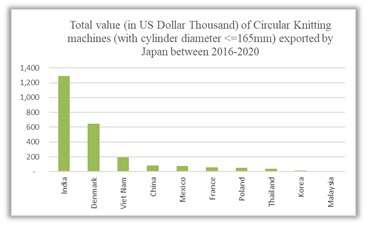
Figure 2: Circular Knitting Machines (with cylinder diameter
Between 2016-2020 India was the leading importer of circular knitting machines (with cylinder diameter <=165mm) from Japan. Its total import valued USD 1 Million, which is more than half of the world’s total import of those machines in the same duration. Denmark ranked 2nd in this list of top 10 importers with the total import of USD 0.646 Million. Malaysia ranked 10th in this list with the total import of 10 US Dollar Thousand from Japan. Except India, no other nation imported the above machineries from Japan in 2020. This machinery has a very low export. Most of this total export was done in 2016. In the later years, the export rate of this machine fell down.
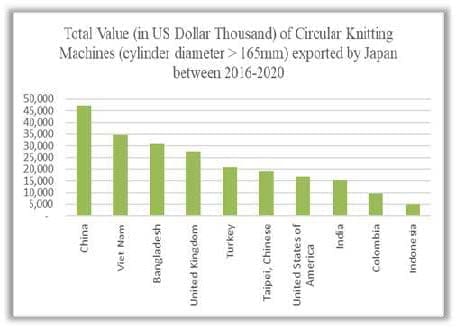
Figure 3: Circular Knitting Machines with less than 165mm
Machines with less than 165mm Diameter were majorly exported to China between year 2016-2020 by Japan. Export to china of less than 165mm Día knitting machine has contributed 46.948 Million USD of total export according to 2016-20 survey report. Whereas India stands on 8th position in this list with USD 15.2 Million followed by Colombia and Indonesia.
Unlike other machineries that witnessed a decline in their exports, Circular Knitting Machines with cylinder diameter greater than 165mm did not face any decrease in the export due to the pandemic. Colombia’s highest import was in the year 2020 in spite of the global pandemic. Even Turkey’s highest import of the above machineries was in the year 2020 which was worth USD 7.5 million, much greater than the value of its import in the previous 4 years. In Flat knitting and stitchBonding machines, China proved to be the leading importer from Japan in the year of 2016-2020 with a Cumulative figure of USD 373 Million followed by Bangladesh & Vietnam, respectively. Myanmar ranked 10th in this list with a total value of USD 19,358 Million. Even the export of this machinery shrunk due to the Covid-19 pandemic. The highest export between 2016- 2020 was done to Bangladesh in the year 2017 which valued USD 113.562 million. Basic machinery in textile operations like making gimped yarn, Tulle, lace, embroidery, trimmings Etc. are extensively imported by USA Between 2016-2020 which worth 184.037 Million USD of total Japanese machinery export which was followed by Taipei Chinese & India. India’s import is worth USD 46 Million. Export to Taipei drastically tailed off in the year 2020. The total value of machinery imported by Taipei was USD 0.49 million which was much less than the export in the previous years.
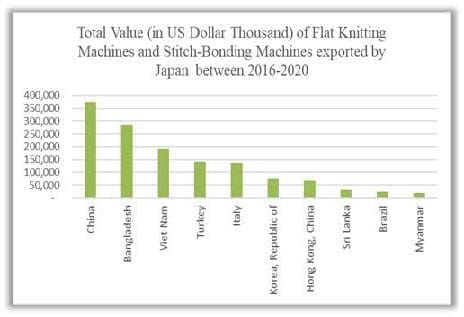
Figure 4: Flat Knitting and stitch-Bonding machines

Figure 5: Machinery in textile operations like making gimped, lacembrtrimmings
Report By:
Radhika Boddu
Research Analyst, Textile Value Chain

